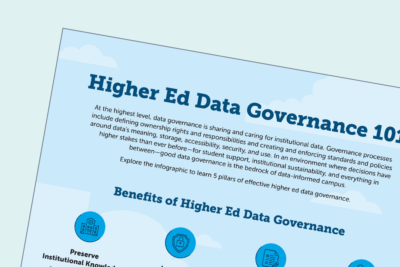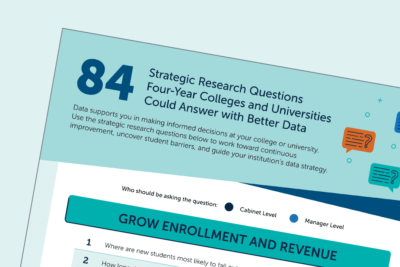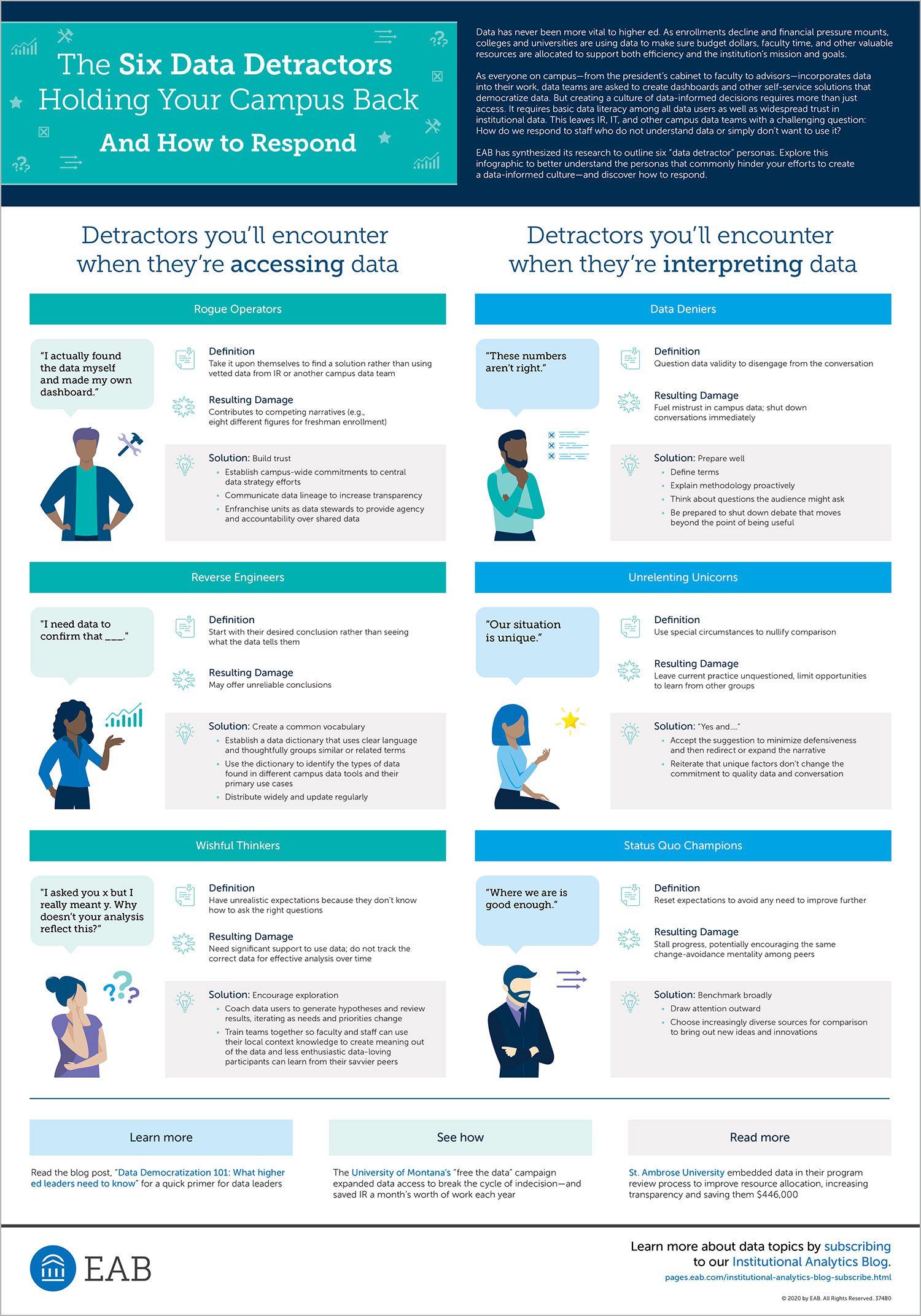The six data detractors holding your campus back – and how to respond
As everyone on campus—from the president’s cabinet to faculty to advisors—incorporates data into their work, data teams are asked to create dashboards and other self-service solutions that democratize data access. But creating a culture of data-informed decisions requires more than just access. It requires basic data literacy among all data users as well as widespread trust in institutional data. This leaves IR, IT, and other campus data teams with a challenging question: How do we respond to staff who do not understand data or simply don’t want to use it?
EAB has synthesized its research to outline six “data detractor” personas. Explore this infographic to better understand the personas that commonly hinder your efforts to create a data-informed culture—and discover how to respond.
More Resources

How Scripps College is Expanding Their Capacity and Expertise with EAB
Strategic Advisory Services
Higher ed data governance 101

